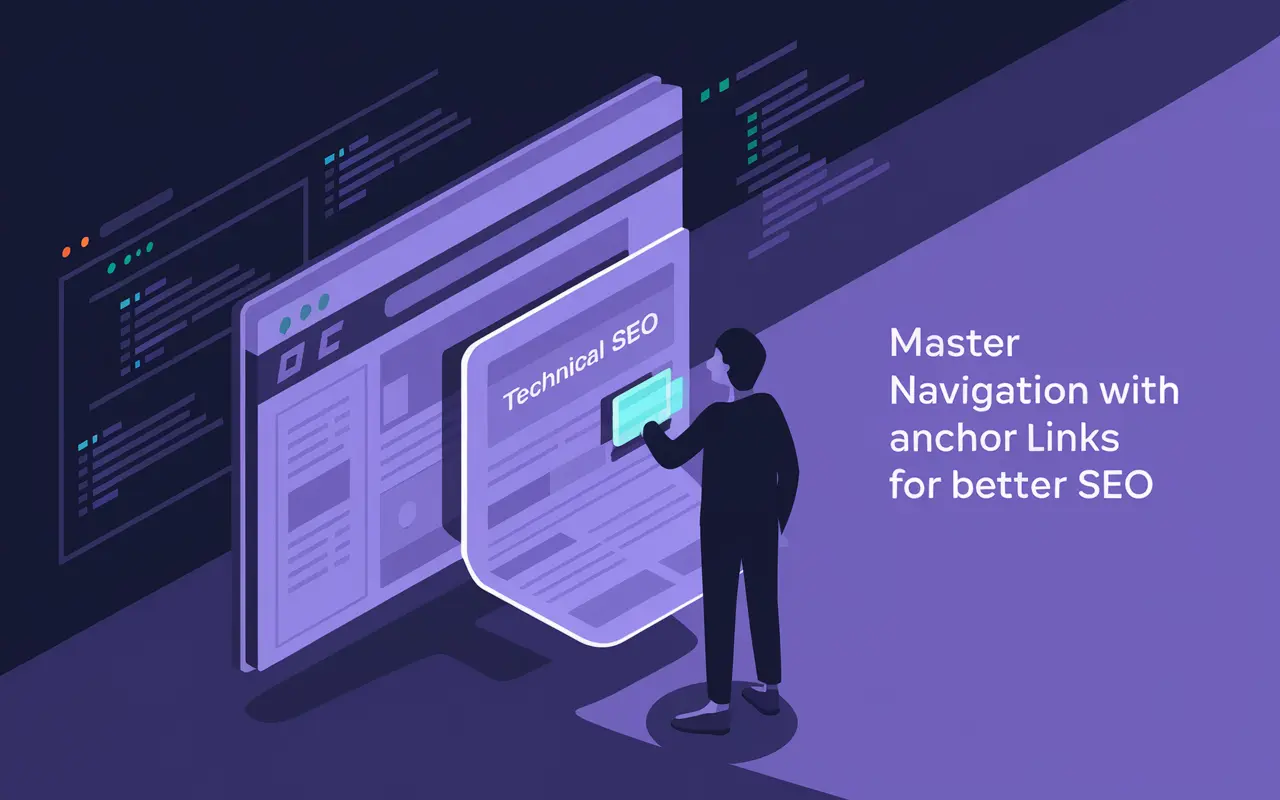[custom_breadcrumb]
Boost Your Small Business with Proven SMB SEO Strategies
Struggling to get noticed online or drive traffic to your small business? You’re not alone. Many SMBs face the same challenge, but the solution is simpler than you think — SEO. With the right SEO strategies, you can boost your visibility & grow your business. Start today by exploring our practical guides and tips tailored specifically to help your SMB succeed.

Why SEO is Essential for SMBs in 2025?
If you’re a small business owner, you’ve probably heard of SEO aka search engine optimization. But you might still be wondering how it actually helps your business?
In 2025, SEO is more important than ever. Let me explain it to you with a scenario. Imagine you’ve just launched a new website for your business. You’ve spent hours perfecting the design and writing content you believe in. But a few months later, you’re checking your site’s performance and realize… crickets! Your website’s not at all getting the traffic you expected when you started it.
This is where SEO comes in as your saviour.
As its name suggests, SEO isn’t just about optimizing and ranking higher on Google, though that’s certainly a key part of it. Actually, it’s about making sure your target audience can find you when they need your products or services the most.
In this article, we’ll break down how SEO can solve the challenges you face as an SMB owner. Keep reading and we’ll show you practical, easy-to-understand ways to get started, even if you’re on a limited budget.
Key Challenges SMB Face With SEO
As an SMB owner, the challenges you face when it comes to SEO might seem overwhelming. You’ve got limited time, a smaller budget, and a to-do list that never ends. And yet, you know that being found online is exactly what you need for your success.
Juggling with all these problems, you might be asking yourself:
Relax Sophie. We get you! Because these questions come up all the time.
SEO for small businesses doesn’t have to be complex or super expensive. But the reality is that many SMBs, just like yours, fall into the trap of feeling like SEO is something they can’t afford or don’t have time to figure out.
Take a small bakery in your area, for example. They might be making delicious treats. But if they’re not optimizing their website for local search, how will potential customers find them online when searching for “best bakery near me”? Without local SEO, they’re missing out on valuable customers who could have been walking through their door. Making purchases right there!
And that’s why we’re here to simplify SEO for you. We’ll help you focus on the right strategies — those that will move the needle and actually grow your business without wasting time or money.
Learn the Basics of SEO for SMBs & Get Started the Right Way
Alright, so now you know SEO is important for your business, but where should you start?
We understand that the idea of diving into SEO might feel a bit overwhelming. That too, especially if you’ve never done it before. But trust us, it really doesn’t have to be overwhelming. Let’s break it down into bite-sized pieces that you can tackle one step at a time.
First, you need to understand what SEO is at its core. You can think of it like you’re setting up the foundation of your business’s online presence. Just like you wouldn’t build a house on a shaky foundation, you shouldn’t expect your website to succeed without a solid SEO base.
Here are the key building blocks of SEO you need to focus on:
Keyword Research
This is the very first step in understanding what your customers are searching for. Tools like Google Keyword Planner or Ubersuggest can help you find words and phrases that your potential customers use when they’re looking for businesses like yours. And once you have your keywords, use them strategically in your website’s content. And remember, don’t stuff them! Just think of quality over quantity.
On-Page SEO
Another thing you need to do for your site is to optimize its pages. You optimize title tags, meta descriptions, headers, and content, so search engines know exactly what each page is about. For example, if you run a plumbing service in Atlanta, make sure your homepage mentions “Atlanta plumbing services” in your headings and descriptions. And your audience will quickly recognize you with this!
Local SEO
Since you’re likely targeting customers in your area, you need to focus on local SEO. This means you must be optimizing your Google My Business profile and add your business to local directories. And this will make sure your name, address & phone number (NAP) are consistent across the web. Without local SEO, you might miss out on local customers who are searching for your services nearby.
Mobile Optimization
Most people search on their phones these days. Just like me and you do! And if your site isn’t mobile-friendly, you’re losing potential customers. Google also ranks mobile-optimized websites higher. So it’s quite really worth investing in a mobile-responsive design.
These are the simple yet very beginner SEO steps you need to take. And they’ll make a super visible impact on your SMB. Along with this, you can also follow some advanced strategies to stay on top as compared to the intense competition.
Simple SEO Tactics You Can Implement Today for Quick Wins
Once you’ve got the basics of SEO down, it’s time to level up with some advanced strategies that will help your business stand out in your industry. Think of this as upgrading from a simple car to a race car that speeds and always keeps you ahead of everyone. And just like that, these strategies are designed to take your SEO from “good enough” to “exceptional.”
Hyperlocal SEO
Imagine you run a hair salon in a specific neighborhood. You want people in that neighborhood to find you, right? That’s exactly what hyperlocal SEO is for. You can optimize your site not just for the city, but for even smaller, local neighborhoods. Add neighborhood-specific keywords to your content, like “best hair salon in [Your Neighborhood].” This helps you capture those customers who are searching for something close by.
Voice Search Optimization
With the rise of virtual assistants like Siri and Alexa, people are now using voice search to find businesses. This means your SEO strategy needs to adapt. To optimize for voice search, focus on long-tail keywords and conversational phrases. For example, instead of targeting “plumber in [city],” you might target “who’s the best plumber near me?” By anticipating the way people speak when searching, you’ll improve your chances of showing up in voice search results.
Link Building
Links from other websites to your site (also known as backlinks) are one of the most powerful SEO tools you have. They act like a vote of confidence in your website’s authority. But don’t just buy backlinks—this can get you penalized. Instead, focus on earning them by partnering with local businesses, contributing to industry blogs, or getting featured in news articles. Quality over quantity is the key here.
Content Optimization for User Intent
It’s not just about writing blogs anymore; it’s about writing content that satisfies what your audience is looking for. If someone’s searching for “best pizza in [city],” they want more than just a list of options. They actually want to know why your pizza is the best. That’s why you need to focus on delivering the content that aligns with user intent, whether it’s informational, transactional, or navigational. And this will help you stand out and attract the right traffic.
By focusing on these advanced strategies, you’ll not only improve your ranking but also build a stronger connection with your ideal customers, positioning your business ahead of competitors who are still stuck on the basics.
Boost Your Business Visibility with Local SEO
Imagine you’re a small family-owned café in a bustling neighborhood. You make great coffee, your service is top-notch, and you’ve got loyal customers. But despite all this, new customers aren’t walking through your door as often as you’d like. Why? Because they can’t find you online.
That’s where local SEO comes in.
Local SEO is the right key that lets people in your area find your business when they search online. If your customers are searching for services like “best coffee in [City]” or “cafe near me,” you want to make sure your business pops up in those results.
Here’s how you can boost your local visibility using your local SEO:
- Local Keywords: Make sure your website content includes location-specific terms. For example, instead of just “best cafe,” use “best cafe in [Your City].” This makes your business relevant to local searchers.
- Google My Business: This is literally a must-have thing. You need to claim and optimize your profile to show up in Google Maps and local search results. Make sure to add your business hours, photos & encourage customers to leave reviews.
- Local Directories: Get your business listed on local directories like Yelp, Yellow Pages, or local Chamber of Commerce websites. This can help you build credibility and even your potential customers would find you more easily.
Local SEO doesn’t have to be complicated or expensive. But it can make a huge difference in helping local customers discover your business. And when they do, you’re one step closer to turning those searches into sales.
Cost-Effective SEO Tools for SMBs
As an SMB owner, you’re no stranger to budget constraints. But that doesn’t mean you can’t take charge of your SEO strategy. There is always something brighter ahead.
And the good news is that there are plenty of affordable tools available that can help you improve your SEO without draining your wallet.
Let’s talk about some tools that can make a real difference:
- Google Analytics: This free tool helps you track your website’s traffic and understand where your visitors are coming from. By analyzing the data, you can identify which pages perform well and which need improvement.
- Google Search Console: Another free tool from Google, it helps you monitor your site’s health and performance in search results. It shows you which keywords bring traffic, which pages need attention, and if there are any technical issues with your site.
- Ubersuggest: This tool offers a lot of functionality for free (or at a low cost). It not only helps you find the right keywords for your business but also checks your competitors. Plus, you can also monitor your website’s SEO health.
- MozBar: A browser extension that lets you check the authority of any website. It’s great for analyzing competitors or local businesses you want to outrank.
- Yoast SEO (for WordPress): If your website runs on WordPress, this plugin can play a big role in on-page SEO. It guides you through optimizing your content with keywords, & meta descriptions, along with readability improvements.
All these tools can prove to be super supportive for your site. These will help you measure your website’s success and stay ahead of competitors, all while staying within your budget. You don’t need to spend a fortune to get started. Just a little bit of time and effort and you’ll start seeing results.
How to Track Your SEO Progress?
You’ve learned what SMB SEO is. You learned its basics and started implementing it. Now what?
You’ve put in the effort, implemented SEO strategies, and started seeing some traffic, but how do you know if your SEO strategy is truly working? The answer actually lies in measuring success. Without tracking your SEO progress, you won’t know what’s working and what needs tweaking.
Fortunately, measuring SEO success doesn’t have to be complicated. You can easily track your progress using:
- Google Analytics
This tool is your best friend. It shows you:
- where your website traffic is coming from
- what pages visitors are looking at
- how long they’re staying on your site.
By monitoring this data, you can see which keywords and pages are performing well. And what needs your focused attention!
- Google Search Console
It helps you understand your site’s performance in Google Search. With this tool, you can track:
- keyword rankings
- see how many impressions your pages are getting
- identify any technical issues that might be affecting your performance
Understanding all these elements will give you a deeper insight on how you can better align your strategy to outshine your competitors.
Key Metrics to Track
While you’re at it, what you actually need to track using these tools are the key metrics like:
- Organic Traffic: How much traffic comes from search engines (this is your main goal).
- Keyword Rankings: Are the keywords you’re targeting bringing in traffic?
- Bounce Rate: If visitors leave your site quickly, it may indicate your content isn’t engaging enough.
Tracking these metrics will give you the clarity you need to refine your SEO efforts to optimize what’s working and improve areas that aren’t performing as well. Plus, you also need to remember, SEO isn’t a one-time job. It demands you to be patient with it. And your consistent tracking and tweaking will lead to long-term success.
Start Growing Your SMB with a Tailored SEO Strategy
At DigiDream, we understand the unique challenges small and medium-sized businesses face in today’s digital world. With years of experience and a proven track record, we’ve helped countless businesses grow by harnessing the power of SEO.
Let us help you unlock more revenue and visibility through our customized SEO strategies. Whether you’re looking to improve your local search rankings or create a sustainable SEO plan for long-term growth, we’re here to guide you every step of the way.
Ready to get started? Contact us today, and let’s start building the future of your business with a strategy that works.





